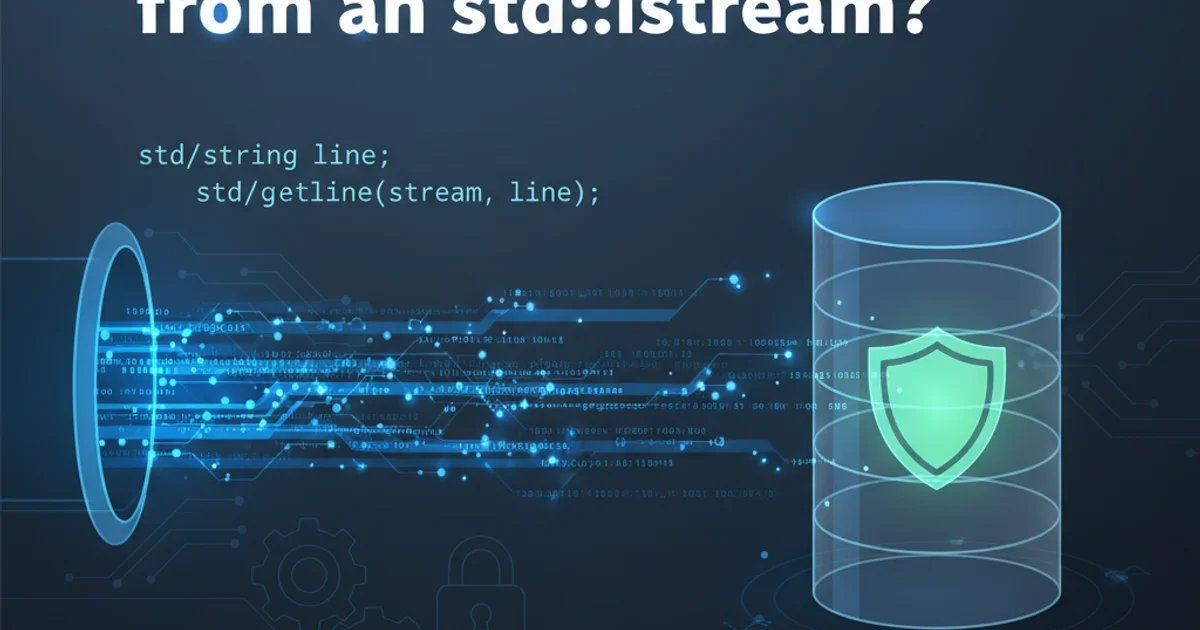What exactly -ffast-math option does while compiling with gcc
Categories:
Understanding GCC's -ffast-math Option: Performance vs. Precision

Explore the implications of using GCC's -ffast-math flag, its impact on floating-point arithmetic, and when it's safe (or unsafe) to use for performance optimization.
When compiling C or C++ code with GCC, you might encounter various optimization flags. One such flag, -ffast-math, promises significant performance gains by relaxing strict IEEE 754 floating-point standards. While tempting for computationally intensive applications, understanding its exact behavior and potential pitfalls is crucial. This article delves into what -ffast-math does, the specific optimizations it enables, and the trade-offs involved.
What -ffast-math Does
The -ffast-math option is a composite flag that enables several individual optimizations related to floating-point arithmetic. These optimizations are designed to make floating-point calculations faster, often by assuming certain properties that are not guaranteed by the IEEE 754 standard. This can lead to reordering of operations, changes in precision, and even different results compared to strict adherence to the standard. It's important to note that -ffast-math is a convenience flag that bundles several other flags, and its exact behavior can sometimes vary slightly between GCC versions.
flowchart TD
A[Source Code] --> B{GCC Compiler}
B -- -ffast-math --> C[Relaxed FP Rules]
C --> D1[No NaNs/Infs]
C --> D2[Associativity]
C --> D3[Reciprocal Div]
C --> D4[Fused Multiply-Add]
D1 & D2 & D3 & D4 --> E[Faster Execution]
E --> F{Potentially Different Results}
B -- No -ffast-math --> G[Strict IEEE 754 Rules]
G --> H[Slower Execution]
H --> I[Predictable Results]Flowchart illustrating the impact of -ffast-math on compilation and execution.
Key Optimizations Enabled by -ffast-math
The -ffast-math flag enables a collection of individual flags, each relaxing a specific aspect of floating-point behavior. Understanding these sub-flags helps in grasping the full impact of -ffast-math:
-fno-signed-zeros: Treats+0.0and-0.0as equivalent. This can affect the sign of results in certain operations, especially division.-fno-trapping-math: Disables floating-point exceptions (e.g., division by zero, overflow, invalid operation). This means such events will not cause signals or traps, potentially leading toNaNorInfresults without explicit notification.-fno-math-errno: Prevents math functions from settingerrno. This can speed up calls to functions likesqrtorlogby avoiding theerrnocheck.-fno-denormals-are-zero(or similar): On some architectures, this might cause subnormal (denormalized) numbers to be treated as zero, which can significantly speed up calculations involving very small numbers, but at the cost of precision.-fassociative-math: Allows the compiler to reorder floating-point operations based on algebraic associativity rules (e.g.,(a + b) + cbecomesa + (b + c)). While mathematically equivalent for real numbers, floating-point addition and multiplication are not strictly associative due to finite precision. This can lead to different results.-freciprocal-math: Allows the compiler to replace division by a constant with multiplication by its reciprocal (e.g.,x / 2.0becomesx * 0.5). This is generally faster but can introduce small precision differences.-fno-rounding-math: Assumes default rounding mode (round-to-nearest, ties to even) and allows optimizations that might not respect other rounding modes.-fno-stack-check: (Less directly related to FP, but sometimes included in fast-math bundles on older systems or specific contexts) Disables stack overflow checks.-fno-finite-math-only: This flag is actually disabled by-ffast-math.-ffast-mathimplies-ffinite-math-only, meaning it assumes arguments and results will not beNaNorInf. This allows optimizations that would be incorrect ifNaNorInfvalues were present.-fno-unsafe-math-optimizations: This flag is also disabled by-ffast-math.-ffast-mathimplies-funsafe-math-optimizations, which enables aggressive optimizations that might violate strict IEEE 754 rules, such as reordering operations and assuming noNaNorInfvalues.
#include <stdio.h>
#include <math.h>
int main() {
double a = 0.1;
double b = 0.2;
double c = 0.3;
// Example of non-associativity in floating-point arithmetic
double result1 = (a + b) + c;
double result2 = a + (b + c);
printf("((a + b) + c) = %.17f\n", result1);
printf("(a + (b + c)) = %.17f\n", result2);
// Example of division by reciprocal
double x = 10.0;
double div_result = x / 3.0;
double mul_result = x * (1.0 / 3.0);
printf("x / 3.0 = %.17f\n", div_result);
printf("x * (1.0 / 3.0) = %.17f\n", mul_result);
return 0;
}
C code demonstrating potential differences due to floating-point non-associativity and reciprocal multiplication.
-ffast-math can lead to non-deterministic results across different compilers, architectures, or even different versions of the same compiler. This makes debugging and ensuring reproducibility extremely difficult.When to Use (and Not Use) -ffast-math
The decision to use -ffast-math should be made carefully, weighing the performance benefits against the risks to numerical stability and correctness.
When to Consider Using It:
- High-performance computing (HPC) where absolute precision is not critical: Scientific simulations, graphics rendering, or machine learning models where small numerical deviations are acceptable and performance is paramount.
- Benchmarking: To see the maximum theoretical performance of your code, understanding that the results might not be strictly correct.
- When you have thoroughly tested and validated your application's numerical stability with
-ffast-mathenabled, ensuring that the relaxed rules do not introduce unacceptable errors.
When to Avoid It:
- Financial calculations or any application requiring strict adherence to IEEE 754: Where even tiny deviations can lead to significant errors or legal issues.
- Applications where
NaNorInfvalues are expected and handled explicitly:-ffast-mathassumes these will not occur, potentially leading to incorrect behavior. - Code that relies on the exact behavior of signed zeros or specific rounding modes.
- When reproducibility across different systems or compiler versions is a strict requirement.
- Debugging numerical issues: It can obscure the root cause of floating-point errors.
# Compile without -ffast-math (strict IEEE 754)
gcc -O2 my_program.c -o my_program_strict -lm
# Compile with -ffast-math (relaxed FP rules)
gcc -O2 -ffast-math my_program.c -o my_program_fast -lm
# Compare execution times and results
./my_program_strict
./my_program_fast
Command-line examples for compiling with and without -ffast-math.
-ffast-math flag, consider enabling specific sub-flags (e.g., -freciprocal-math, -fassociative-math) if you understand their implications and only need certain optimizations. This provides finer control over the trade-off between speed and precision.